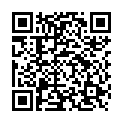|
|
|
| Module code: UI-MSV |
|
|
4VU (4 hours per week) |
|
5 |
| Semester: 5 |
| Mandatory course: yes |
Language of instruction:
German |
Assessment:
Written exam
[updated 22.09.2021]
|
UI-MSV (P251-0031) Environmental Technologies, Bachelor, ASPO 01.10.2021
, semester 5, mandatory course
UI-MSV (P251-0031) Environmental Technologies, Bachelor, ASPO 01.10.2023
, semester 5, mandatory course
|
60 class hours (= 45 clock hours) over a 15-week period.
The total student study time is 150 hours (equivalent to 5 ECTS credits).
There are therefore 105 hours available for class preparation and follow-up work and exam preparation.
|
Recommended prerequisites (modules):
None.
|
Recommended as prerequisite for:
|
Module coordinator:
Prof. Dr.-Ing. Thorsten Cypra |
Lecturer:
Prof. Dr.-Ing. Thorsten Cypra
Dr. Ulrike Schinkel
[updated 11.03.2024]
|
Learning outcomes:
After successfully completing this module, students will:
be able to explain the principles and interrelationships of urban development and modern mobility,
be familiar with and understand legal principles and related planning processes,
be able to recognize and understand the effects of urban development and mobility on urban ecology and describe them,
be familiar with the fundamentals of traffic planning and traffic engineering,
be able to create, analyze and evaluate urban ecological concepts and mobility concepts.
[updated 22.09.2021]
|
Module content:
Basic knowledge and practical working methods of urban development and urban planning
Basic knowledge of how to integrate traffic planning into urban development processes
Legal foundations, land use, development and specialized planning
Planning processes and public participation procedures
Functions in city, building and construction methods
Traffic and urban planning
Interaction between urban land use planning and transportation
Urban ecology
Fields of activity and tasks of traffic planning
Causes and structural foundations of mobility
Traffic surveys and forecasts (methods, preparation of data, findings)
Basics of traffic engineering
Developing mobility concepts
Designing urban transport networks, traffic safety and transport infrastructure.
[updated 22.09.2021]
|
Recommended or required reading:
Lampugnani, V. M. (2010): Die Stadt im 20. Jahrhundert. Visionen, Entwürfe, Gebautes. Berlin.
Streich, B. (2014): Subversive Stadtplanung. Wiesbaden.
Schmidt, A.; Jansen, H.; Wehmeyer, H.; Garde, J. (2013). Neue Mobilität für die Stadt der Zukunft. Projektbericht der Stiftung Mercator.
Schneider, U. (2017): Urbane Mobilität im Umbruch: Normen, Leitbilder und familiäre Aushandlungsprozesse zu Autos und Elektroautos, Springer-Verlag.
[updated 22.09.2021]
|

